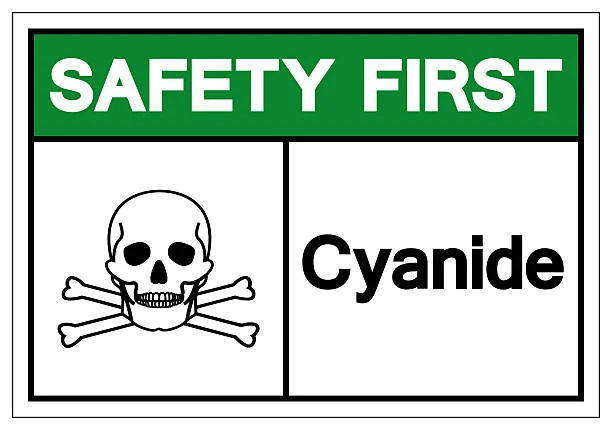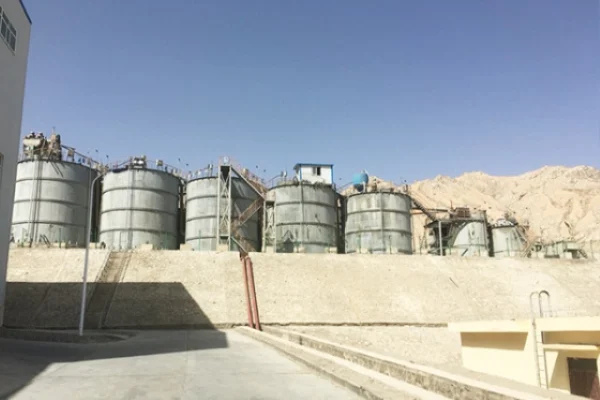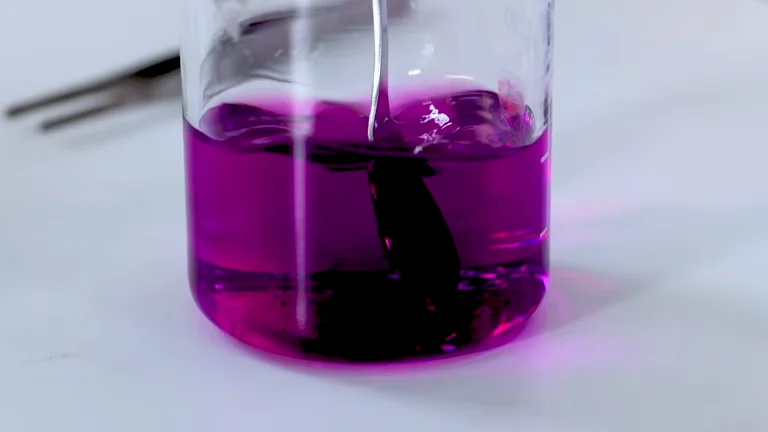
Introduction
Sodium cyanide (NaCN), an inorganic compound, has a wide range of applications across various industries despite its highly toxic nature. In the Plastic industry, Sodium cyanide plays several crucial roles in different processes, contributing to the production of a diverse array of plastic materials and products.
Production of Plastic Precursors
Adiponitrile Synthesis for Nylon Production
One of the significant applications of Sodium Cyanide in the plastic industry is in the production of Adiponitrile, which is a key precursor for Nylon 6.6 - a widely used synthetic fiber in the plastics sector. The process involves the generation of hydrogen cyanide from sodium cyanide. Hydrogen cyanide then participates in a series of reactions to form adiponitrile. With the growing demand for nylon in the textiles industry and manufacturing sector for various products such as clothing, carpets, and automotive parts, the need for adiponitrile, and consequently, sodium cyanide, is on the rise. For example, in the manufacturing of high - quality automotive seat belts, nylon 6.6 fibers, derived from adiponitrile produced using sodium cyanide - based processes, offer the necessary strength and durability.
Production of Acrylonitrile for Polyacrylonitrile (PAN)
Sodium cyanide is also involved in the production of acrylonitrile, which is used to manufacture polyacrylonitrile (PAN). PAN is a vital polymer with applications in areas like synthetic fibers for the textile industry and as a precursor for carbon fibers. In the production of acrylonitrile, sodium cyanide - derived chemicals react with other compounds to form the acrylonitrile monomer. These monomers are then polymerized to create polyacrylonitrile. Carbon fibers made from PAN have high strength - to - weight ratios and are used in aerospace components, high - performance sports equipment, and advanced composite materials. The use of sodium cyanide in the production chain of acrylonitrile and subsequent PAN products highlights its importance in enabling the manufacturing of high - tech and high - performance plastic - based materials.
As a Reaction Aid
Catalysis in Specific Polymerization Reactions
In certain polymerization reactions within the plastic industry, sodium cyanide can act as a catalyst or reaction aid. For instance, in some condensation polymerization processes where specific functional groups need to react to form polymer chains, sodium cyanide can facilitate the reaction by promoting the activation of reactants. It can help in breaking and forming chemical bonds in a way that speeds up the polymerization process, leading to more efficient production of plastics. This is particularly useful in the production of specialty plastics where precise control over the reaction rate and polymer structure is required. By using sodium cyanide as a reaction aid, manufacturers can achieve the desired molecular weight and polymer architecture more effectively.
Facilitating Chemical Modifications in Plastics
Sodium cyanide can be used to introduce specific chemical groups or functionalities into plastic polymers. Through carefully designed chemical reactions, the cyanide group from sodium cyanide can be incorporated into the polymer backbone or side chains. This modification can alter the properties of the plastic, such as improving its solubility, reactivity, or adhesion characteristics. For example, in the production of certain adhesives based on plastic polymers, the introduction of cyanide - derived groups can enhance the adhesive's ability to bond to different substrates, making it more effective in applications like bonding plastic parts in the electronics or automotive industries.
In Specialty Plastic Manufacturing
Production of Sodium Ferrocyanide - Stabilized Plastics
Sodium cyanide is used in the production of sodium ferrocyanide, which acts as a stabilizer in plastics. Plastics are integral parts of numerous industrial and consumer products, and their stability is crucial for maintaining product quality and lifespan. Sodium ferrocyanide helps in preventing degradation of plastics due to various factors such as heat, light, and chemical exposure. In applications where plastics are exposed to harsh environments, such as in outdoor furniture, pipes for chemical transportation, or electronic device housings, the use of sodium ferrocyanide - stabilized plastics, enabled by the use of sodium cyanide in its production process, ensures that the plastic products maintain their structural integrity and performance over time.
Contribution to the Production of High - Performance Engineering Plastics
In the production of high - performance engineering plastics, which are designed to withstand extreme conditions such as high temperatures, high pressures, and corrosive environments, sodium cyanide can play an indirect but important role. As mentioned earlier, it contributes to the production of key monomers and reaction aids that are used in the synthesis of these advanced plastics. For example, in the manufacturing of polyetheretherketone (PEEK), which is used in aerospace, automotive, and medical applications due to its excellent mechanical and chemical resistance properties, the complex synthesis process may involve steps that rely on chemicals derived from sodium cyanide. Although the direct use of sodium cyanide in PEEK production may not be obvious, the overall chemical supply chain that leads to the production of PEEK monomers and the optimization of polymerization reactions can be traced back to the utilization of sodium cyanide in earlier stages of chemical manufacturing.
Environmental and Safety Considerations
While sodium cyanide is valuable in the plastic industry, its extreme toxicity demands strict safety measures in all stages of its use, from production to disposal. In the plastic manufacturing facilities, proper handling procedures, such as the use of personal protective equipment, well - ventilated work areas, and secure storage of sodium cyanide, are essential to prevent any accidental exposure to workers. Additionally, environmental concerns regarding the disposal of waste containing sodium cyanide or its by - products are significant. Stringent regulations are in place to ensure that any waste is treated properly to prevent contamination of soil, water, and air. Recycling and waste reduction initiatives are also being explored to minimize the environmental impact associated with the use of sodium cyanide in the plastic industry. For example, efforts are being made to develop closed - loop systems where the by - products of sodium cyanide - related reactions in plastic production can be recycled or reused in a safe and sustainable manner.
Conclusion
Sodium cyanide has a multifaceted role in the plastic industry, from being a key ingredient in the production of essential plastic precursors like adiponitrile and acrylonitrile to acting as a catalyst, reaction aid, and contributing to the production of specialty and high - performance plastics. Despite the challenges associated with its toxicity and environmental impact, its unique chemical properties make it an indispensable compound in the complex web of plastic manufacturing processes. As the plastic industry continues to innovate and develop new materials and production methods, the role of sodium cyanide may evolve, but its importance in enabling the production of a wide range of plastic products is likely to persist, provided that safety and environmental concerns are adequately addressed through technological advancements and strict regulatory compliance.
- Random Content
- Hot content
- Hot review content
- Reagent Grade/Industrial Grade Hydrochloric Acid min.31%
- Anionic/Cationic Polyacrylamide Flocculant PAM
- Acetone
- Ferrous Sulfate Industrial Grade 90%
- Industrial Acetic Acid 99.5% Colorless Liquid Glacial acetic acid
- Sodium sulphate 99% Pharmacy Grade
- lithium Carbonates 99.5% Battery Level or 99.2% Industry grade 99%
- 1Discounted Sodium Cyanide (CAS: 143-33-9) for Mining - High Quality & Competitive Pricing
- 2China's New Regulations on Sodium Cyanide Exports and Guidance for International Buyers
- 3Sodium Cyanide 98% CAS 143-33-9 gold dressing agent Essential for Mining and Chemical Industries
- 4International Cyanide(Sodium cyanide) Management Code - Gold Mine Acceptance Standards
- 5China factory Sulfuric Acid 98%
- 6Anhydrous Oxalic acid 99.6% Industrial Grade
- 7Oxalic acid for mining 99.6%
- 1Sodium Cyanide 98% CAS 143-33-9 gold dressing agent Essential for Mining and Chemical Industries
- 2High Quality 99% Purity of Cyanuric chloride ISO 9001:2005 REACH Verified Producer
- 3Zinc chloride ZnCl2 for High Molecular Weight Polymers Initiator
- 4High Purity · Stable Performance · Higher Recovery — sodium cyanide for modern gold leaching
- 5High Quality Sodium Ferrocyanide / Sodium Hexacyanoferr
- 6Gold Ore Dressing Agent Safe Gold Extracting Agent Replace Sodium Cyanide
- 7Sodium Cyanide 98%+ CAS 143-33-9











Online message consultation
Add comment: